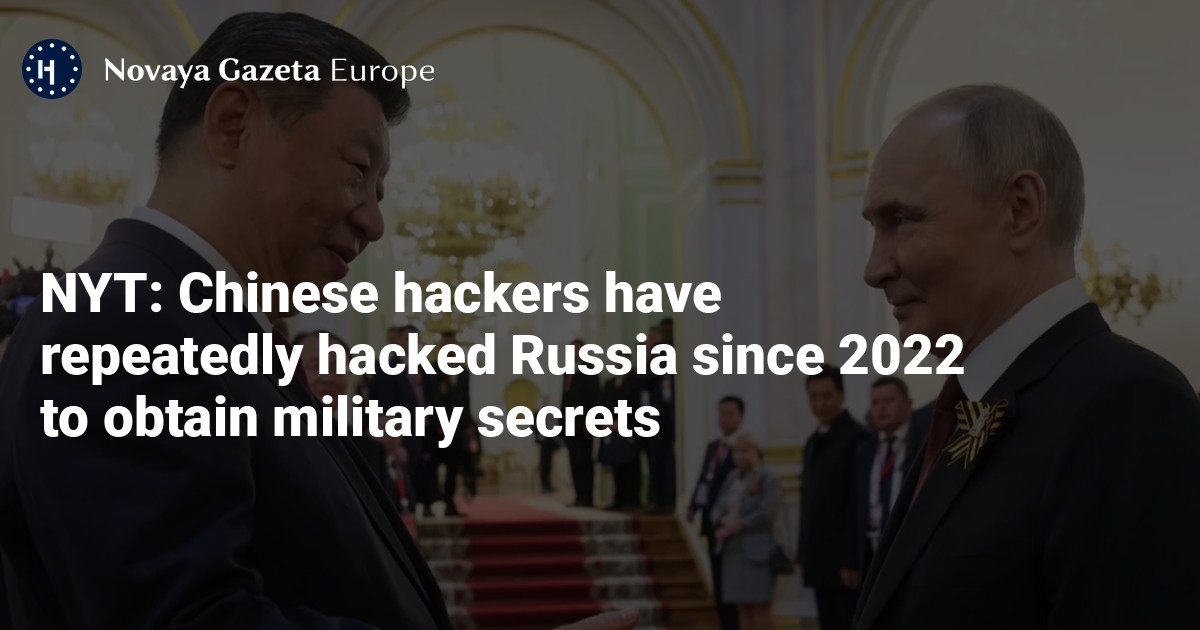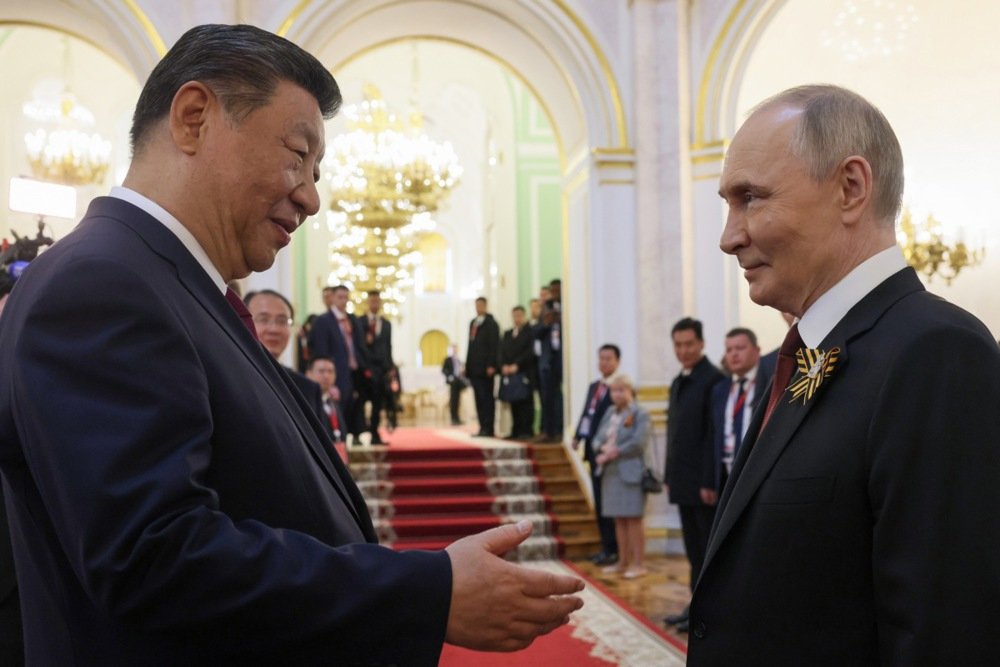




Chinese President Xi Jinping and Vladimir Putin talk after a gala reception for the heads of foreign delegations on Victory Day in Moscow on 9 May 2025. Photo: EPA-EFE/MIKHAIL METZEL/SPUTNIK/KREMLIN POOL / POOL
Hackers linked to the Chinese government have repeatedly hacked Russian companies and government agencies since May 2022 in order to gain access to classified information and military secrets, the New York Times (NYT) reported on Thursday, citing a group of cyber analysts.
The attacks, according to the NYT, have steadily continued even as Vladimir Putin and Chinese President Xi Jinping have publicly pronounced a new era of friendship and strategic partnership between their respective countries, and despite pledges not to conduct cyber-attacks against each other.
In one case cited by the NYT, a government-funded group, known as Sanyo, pretended to be a major Russian engineering company to obtain information about nuclear submarines. In another, hackers targeted Rostec, the influential Russian state-owned defence conglomerate, attempting to gather data relating to satellite communications, radar systems, and electronic warfare.
“China likely seeks to gather intelligence on Russia’s activities, including on its military operation in Ukraine, defence developments and other geopolitical maneuvers,” Che Chang, a researcher with Taiwan-based cybersecurity research firm TeamT5 told the NYT.
The NYT notes that it is unclear how successful Chinese hackers have been at obtaining classified information, especially as it is unlikely the Kremlin would ever comment publicly or criticise China for its electronic warfare.
However, last week, the NYT also reported that the FSB, Russia’s domestic security agency, had drafted a secret eight-page intelligence document describing China as an “enemy” and stressing the serious threat posed by Beijing to Moscow’s security.
According to the NYT, the document notes the “tense and dynamically developing” intelligence battle taking place behind the scenes of the two countries’ public friendship and suggests that China is seeking to draw lessons from Russia’s war experience to increase its military preparedness for the future, particularly concerning drone warfare.
